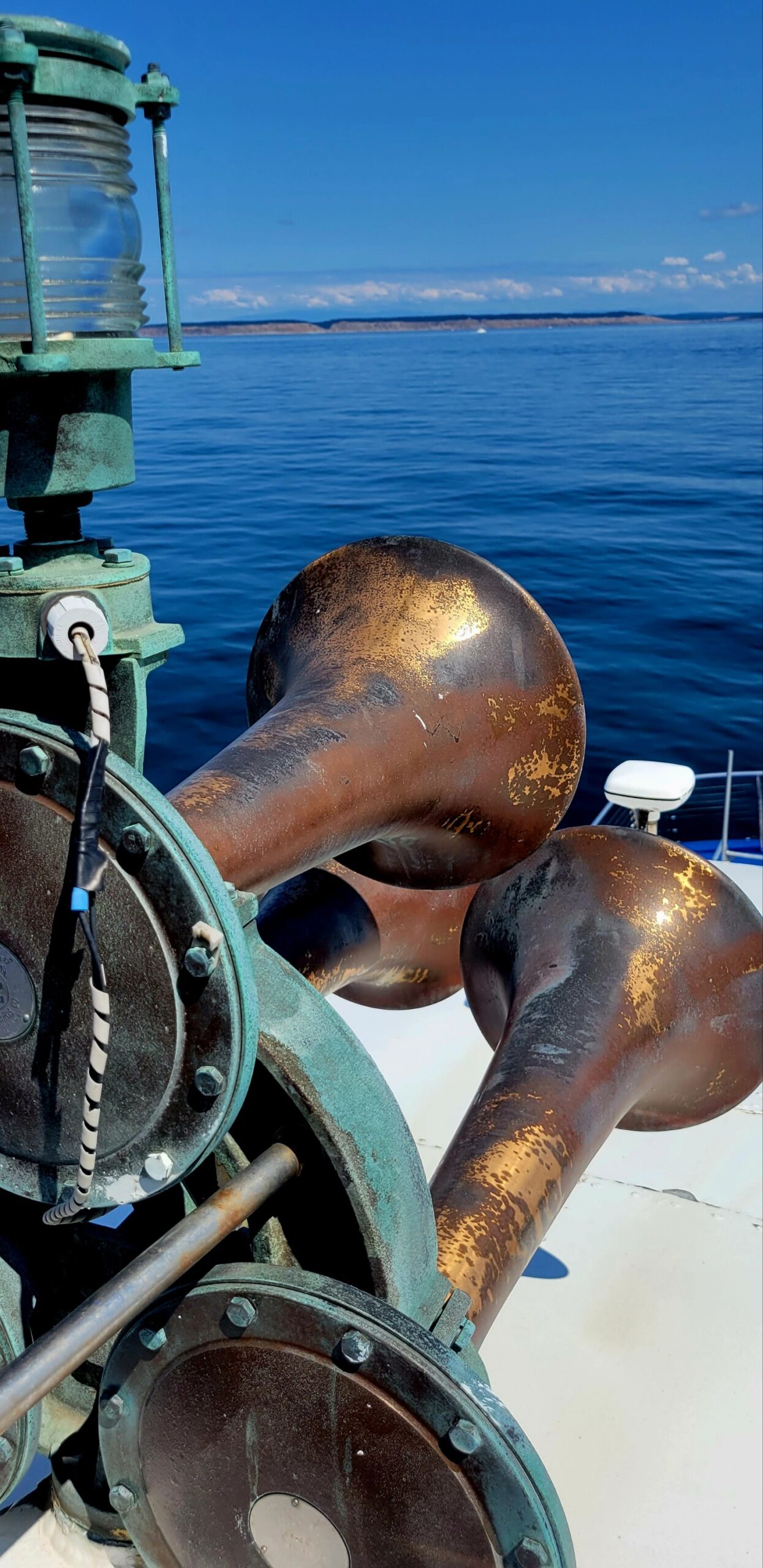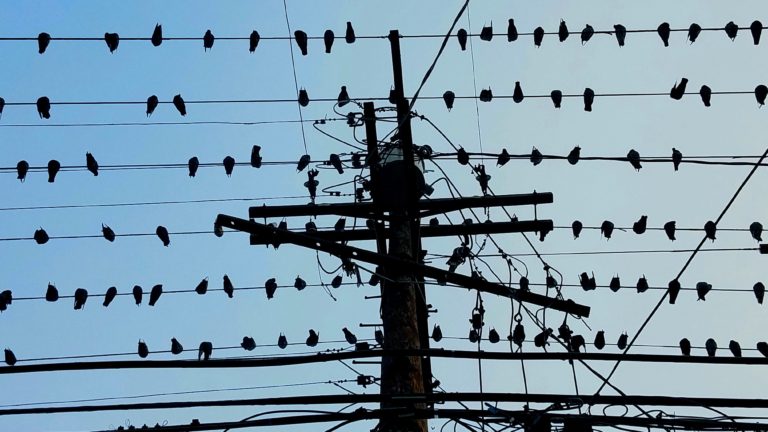Marcelle Thiébaux-Fiction

SOLDIERS
The worst torment was hearing them at night.
Mauve’s excited, beautiful laugh falling on the dark like cool silver water. Blackie’s groan, fetched up from the deepest, most fervent part of his body. These were nocturnal melodies to shatter Amy Archer’s young heart back in the spring of 1945.
Her mother, Mauve, would be wearing one of her satin nightgowns in tea-rose or ivory with ecru lace. Amy had all Mauve’s nightgowns memorized as they lay folded in neat piles and scented with lavender sachets in the chiffonier Mauve shared with Amy’s dad, the Captain, who was never coming back because he was dead or missing in action in the Philippines.
From her side of the wall in their house in Saguaro Hills, Amy imagined how her mom, alluring as a movie star, would be kicking off her mules with the swan’s-down toe-puffs and dropping her nightgown straps.
And him, oh Blackie, her Blackie, who had been Amy’s own soldier, she wanted and hated him with a yearning, scalding heartache that fried her stomach and curdled her bones.
Blackie settling back now, yes, that’s what he’d do, arms cradling his head on her mother’s pillow. Sixteen, Amy could see it all because she and her girlfriends were big fans of the Saturday matinees at the Rialto, not to mention dumb stuff Amy did with her other boyfriends, so she had some idea of what it was about.
And now did she hear Mauve say the word “marry”? Amy aghast, straining every blood vessel to hear, couldn’t believe her mother was pretending she wasn’t already married to Daddy. But she couldn’t hear what Blackie had to say to that.
Their criminal words were lost in creaky mattress springs and the torn-up sheets that would land on the floor. Amy pressed her fists against her ears and scrunched her head under her pillow, not wanting to hear her besotted mother’s sighs and lies.
It was like that every night, and if Amy lay barely awake in the early hours or wanted to tiptoe down the hall to go to the bathroom, she could hear them all over again, the heaving and thrashing and her mother’s ecstatic, muffled cries.
Despising them, Amy kept up a hard, stony face in their presence. Even away from them, her heart and stomach stayed leaden, even all the way to the school bus and throughout the day, her head on her school desk.
She couldn’t sleep so she got up and made for the hall. Now, in the middle of the night, her mother appeared in her bedroom doorway, stunned, teeth unbrushed, body unbathed and ripe with the rapture, her tumbling auburn hair ragged and beautiful. Sleep-struck and love-smacked, she looked confused. But maybe not that confused.
“What are you doing up, baby?”
“Nothing.” Amy edged away. She was doing plenty, fuming and plotting.
“Go back to your room.”
“Mother-r-r,” Amy flared up, whining, the pain sticking like a chisel in her throat, “he was my boyfriend. I found him. I put dibs on him. He was mine.”
Mauve dropped a shapely arm on Amy’s shoulder and steered her into the kitchen, out of earshot of the bedroom door.
“Will you shut your little trap! You’re too young to have a boyfriend.”
“You don’t know anything about me, and you don’t even care what I want.” Amy shook her mother off. “And what was that about you’re going to marry him? Are you hoping Daddy is dead?”
“Whoever said that, you snake in the grass!” Mauve slapped Amy’s face with all the force she could muster, but she’d used up most of it during the night so it was pretty weak.
“I’m going outside,” Amy said.
She walked into the desert at their doorstep to breathe the fresh night. Their house stood in the windiest reaches of rocky hills, with the San Jacinto Mountains looming tall and regal. Amy’s dad had built their house in the remote foothills and molded its adobe walls smooth with the rounded shape of wind-washed stones.
She slumped against a post of the veranda. The rosemary bushes, untamed and resinous, snagged her legs. In its season the rosemary put forth tiny blue flowers, but its stems were scratchy all the same. She wiped her tears with her wrist and gazed across the desert’s thorny mesquite.
The rainless desert stretched into low hills gray with vegetation, the knobby scrub, the creosote bushes and prickly pears. High, muscular saguaro cactuses leaned to the wall, limbs outstretched. Nature grew lush around their house, sumptuously irrigated with water illegally tapped and siphoned from the hidden wells coursing beneath their rocks. They profited from this surfeit of water, drained, diverted, and sucked from scarce, secret rivers. An adept engineer, Amy’s daddy had set it up to raid the district’s water and squander its aqueducts. It was one of the Captain’s few crimes, perhaps his only one.
There weren’t many near neighbors in these remote hills, only a few scattered stucco ranches and pastel trailers that had taken root and grown tight on their cinder blocks.
The folks closest by had once littered their dirt yard with corroded sinks, broken toys, and other treasured trash picked up from road kills. A junkyard paradise of gaudy marvels. But those neighbors were long gone, nobody knew where, leaving only a rusting double trailer and a hillside cascade of empty whiskey bottles.
* * *
Amy’s mother followed her outdoors. Amy wouldn’t look at her while they stood together in the moonlight and the cool air. “Go back to your room,” Mauve said again, tentative and conciliatory.
“He was mine.” Amy clung stolidly to her proprietary rights.
“You found him in the underpass in a sewer pipe and he was drunk. He wasn’t even looking at you.”
“He was too looking at me. I rescued him. And it wasn’t a sewer pipe.”
“Rescued? You’re nuts.”
“I gave him my allowance so he could get back to the base. He came over to see me. Me. And you grabbed him.”
“Don’t be ridiculous. You’re just a brat. He’s too old for you.”
Amy swiveled her eyes away, not daring to sass her own mother and say the obvious. She couldn’t just throw it in Mauve’s face that Blackie was twenty-three while her mom was, what? Thirty-five? She was ancient, an old hag.
I hope you die, I hope you die beat in Amy’s brain. She couldn’t say whether she ever uttered it aloud so that anyone might have overheard her.
Mauve wouldn’t admit how old she was, so conceited, so stuck on herself she thought she could get any man. But she was beautiful and Amy knew it.
Mauve Archer danced with soldiers at the USO canteen. She even performed and sang for the USO boys and traveled along with other volunteer ladies, all rank amateurs, in special government buses from camp to camp. The boys clapped and shouted for Mauve, they stamped their boots and whistled.
“Wooo-wooo, Mauve, we love you! We’re crazy for you, Mauve!”
Next morning at breakfast the three of them—Amy, Blackie, and Mauve—eyed one another with wary, churning emotions. Amy’s heart was in pieces.
At the dinette table Corporal Blackie Boyette sat slouched in his military undershirt and army pants, cigarette dangling from his bottom lip, the glowing butt he never detached, just let it hang there. One eye stayed shut because of the upward curl of smoke into his lashes, those lashes that were so long and black they touched his cheek. When he and Mauve played gin rummy in the kitchen, he studied his cards while Amy studied his eyelashes.
He was Blackie because his hair was black, and his beautiful face was so chalky pale, and his eyes went smoldering reptile-green when he shot Amy a straight, hot look. Only nowadays he called her “skinny” and laid a whack across her rear end, and she flung back with “Don’t you dare touch me!” and turned her thin shoulders against him.
Whether they listened or not, the radio blathered on. In the morning it was Rambling with Gambling. Her mom listened day and night. Evenings it was Jack Benny and Duffy’s Tavern and Fibber McGee and Molly and Henry Aldrich. Afternoons Mauve was hooked on Mr. Alexander’s advice to the lovelorn. Amy, sick of Mr. Alexander, wanted music, what Blackie called spinning the platters. Spike Jones. “Water-Loo, she lives up the river, Water-Loo, drip, drip, drip.” Spike Jones crying, “Chlo-o-o-eee.” Spike Jones heiling the führer’s face with raspberries.
“Turn that thing off,” Mauve demanded. “Put on ‘My Blue Heaven.’” She liked the romantic oldies and that was her favorite.
At breakfast it was “Blackie this” and “Blackie that.” “Blackie honey, fix me a Coke,” and Blackie would ignore Mauve right up to the moment she figured she had to get her own Coke. Then he pulled his full solid heft up out of the chair and padded over in his muscular, beautiful bare feet to the Frigidaire. He uncapped a tall, green bottle with a church key, sloshed the brown fizz over ice cubes for Mauve, his chancy cigarette ash hanging over her bubbly Coke. He glanced over at Amy and gave her a sex-drenched look with the insolence of a stud who had two females burning for him at the same time in the same room.
Amy couldn’t escape the torments of her fevered imagination. Blackie on top of her mother, his dog tag tangled in the black hair of his chest and his GI khaki undershirt thrown over the chaise with her mother’s lace underwear. The low rumble of his voice, pleading, seductive, peremptory. “Ah, honey, ah, honey.”
Now, in the kitchen, he favored Amy with a sleep-logged growl. Slapped her fanny. “Hey, skinny.” That’s how he talked to her these days, a pitiful kid whose main business had been to conduct him willy-nilly to her beautiful mother. And Amy’s mangled heart bled afresh.
* * *
Amy fell in love with soldier Blackie Boyette because there was a war on, and her daddy was gone to the front. “Your papa’s off to the seven seas,” jived the Andrews Sisters on every jukebox in town. Amy never had enough time with him, her big, strong daddy, Captain Tom Archer from the Kentucky mountains, so fiercely devoted to the U.S. of A.
They were always going to do something together, visit the animals in the zoo or ride the Fabulous Frenzy roller coaster, take in a picture show at the Rialto, The Maltese Falcon or Casablanca, and now there was no time. There were only soldiers everywhere.
The war was far away, bitterly fought on the soil and seas of Asia and Europe. On the home front, uniformed soldiers crowded the streets of Acacia Springs. Amy and her girlfriends put on their Girl Scout uniforms and sold war stamps in front of Woolworth’s Five and Ten.
Open army trucks roared through Acacia Springs packed with khaki men who leaned over to whistle and yell, “W-o-o-o-o Woo!” They howled at every girl like lovelorn wolfhounds at an indifferent moon. They whistled, hooted with yearning. Passionately they cried out, “Hubba Hubba! A-a-ll meat and no potatoes!” The girls just hated it. Hated it, hated it. Loved it.
Soldiers flocked in from the base on weekend leaves and passes, lounging at the bars and lunch counters. Men in khaki gave brisk trade to jewelers, candy stores, florists, and booze joints.
Desire infected the bright air. Desire inflamed the town.
Men in khaki bought movie tickets at the Rialto, propping their boots on the balcony rail. They smoked and threw popcorn, cracked jokes, caterwauled and booed like teenagers, which a lot of them were.
Khaki shoulders lined up in Shade’s Soda Fountain and Walgreen’s Drugstore. Wheeling slowly around in their seats at the counter, turning to eyeball any woman or girl, homely or comely, when she came in for a Cutex or a Kotex. They sent her hard, hot, meaningful looks, gave her their big, handsome G.I. bullshit grins, letting her know they loved her and especially loved whatever she had under her clothes. For these were men who had no intention of dying young and every intention of bestowing their dead level best on every female in town.
Khaki was so palpable, so intoxicating, you could feel its hairy manliness from blocks away. You felt it as surely as if it were pressed against your naked self, scraping your flesh and giving you beard-burn all over, along with the certainty of death. Its roughness the color of mud, spattered with jungle mud, battle blood. You breathed its glory, its gruff allure. You want to go where they go. You say you do, though everyone knew that khaki meant death.
Wheeling around on barstools of chrome and red leather, they send you syllables of raw love. Come-on, come-on, come-on, come-onnnnn, they call to you, beseeching you with moans and mouth-pops, undermining you as if you were half naked. But theirs is the litany of soldiers soon to die.
Next year the war might be over. You don’t know this yet. Who can say which men will be shot, bayoneted, starved, tortured, flayed, or blown up? They’re not thinking this now and neither are you.
This was how Amy used to daydream.
Amy found Blackie while dawdling home from the library with her loungey walk on an October afternoon, kicking and shuffling her brown-and-white saddle shoes through dead yellow leaves. She found him in the tunnel. He lay like a dead hero in the underpass that linked the westbound and eastbound trains of the Southern Pacific and Santa Fe Railroads.
She liked to shortcut through the dank tunnel under the tracks, searching for tiny treasures. Passengers rushing through the underpass dropped things, like the barrette she found with the ruby like stone. There was always a lucky penny, even a dime gleaming in the narrow gutter of the tunnel walk. Once she found a silver dollar. She kept it in her drawer, wrapped in tissue paper.
When she spotted the inert body of Corporal Boyette, he was hunched into the wall as if he had been trying to hike himself up again.
She walked more slowly. She had no fear of boys or men, but she didn’t want to come on him too suddenly down here. He was pasted to the wall. He looked lost, bilious in the face, with a beard he hadn’t shaved for days. She stood for a moment, then squatted beside him. He smelled as if he’d lain there a week, though it must have been a short time. Otherwise people in the underpass would have seen him.
His beard was sooty, his uniform stained and unbuttoned. When she lifted a swollen lid to see if he was asleep or dead, it was to uncover an emerald, an emerald in the mud. His fine eyes were glazed and bloodshot. He lay sprawled, head back against the dank concrete of the tunnel wall, disoriented by what appeared to be strong drink.
He rolled away from her, and she was afraid he’d passed out. Amy braced his head upright. He roared like a madman in the throes of a nightmare. Then, gaping at her through bloodshot eyes fringed with beautiful eyelashes that swept his cheeks, he croaked, the syllables running together blurred and smeared.
“Goddamn Malinta, what the hell, I’m back, what the fuck am I doing in Malinta? How did I get here?”
Amy seized his hand. “No, you’re not, it’s okay. It’s not that tunnel. It’s not Corregidor. We’re here in the train station. Back home.”
He slumped. “Yeah, oh yeah,” he muttered and looked asleep. Finally he said, “You don’t want to mess with a sodden fuckin hulk that’s gonna puke any minute.” That was handsome Jason “Blackie” Boyette, those his opening utterances the afternoon Amy found him on her way home from school.
Amy was entranced. Smitten. A soldier in khaki so up-close and helpless and in need of her in the dark tunnel, he was so dirty and good looking and talked so rotten that she fell hotly in love.
She knelt by the soldier, profoundly stirred by the soiled condition of his khaki. Knowing her mom wouldn’t feature her talking to any soldier, drunk or sober, and especially blotto like this one.
“Do you need help getting back to the base?”
Recovering, the soldier said in a sick, lazy way, “Where you going with all those books?” He ignored Fannie Hurst’s Back Street and picked up Cherry Ames, Chief Nurse.
“What d’you care?” She took the book away from him.
“I bet you’re smart in school. So take my advice, sister. Don’t get involved with bad guys.”
“I don’t care if you’re a bad guy. I’m going to help you.”
“You’re a little beauty, you know that?”
Bashful, she looked away, feeling hot in her flowered chintz with the sweetheart neckline and bobby sox with the brown-and-white saddle shoes. She faked a hostessy voice like her mother’s. “Would you like a cup of coffee? There’s a corner store by the train depot.”
“I’m okay, don’t worry about me.” With shaky hands he lit a cigarette.
They reeled out of the dark tunnel together, like waking from a dream. Corporal Boyette smiled slowly, his teeth white, wet, and beautifully carnivorous.
“I got into some bad shit. But I’ll be okay.”
“Do you have money to get back to the base?” Amy asked.
Ruefully he pulled out his pockets. “Lost my wallet, all my IDs with my bus ticket back to the base. I’ll look for one of my buddies around the town.”
Amy unzipped her pencil case and pulled out three singles, a quarter, and a bunch of change. Thirty five cents she had to keep in reserve for her Saturday piano lesson with Miss Harmony Ravel, but she gave the rest to the soldier in need.
“Shucks, no, I can’t take your money.”
“It’s okay.” She smiled up at him. “You can pay me back.”
“Hey, you are a sweet girl. What’s your name? I’ll write to you. For sure I’ll pay you back.”
Amy felt her face grow feverish. She did want him to write to her, call her, come to see her.
“It’s Amy. I’ll write my address.”
“Amy, I’ll come and see you with a bunch of pink roses.” Which he did.
She closed her eyes, conquered by this conquest of hers. She couldn’t answer her soldier in khaki, whom she had rescued for the war effort.
Without a qualm she tore out the white endpaper from the book she had borrowed today, Forever Amber, even though she knew it was a crime to deface a library book.
Amy Archer, 7 Ocotillo Road, Saguaro Hills, she wrote in her round high school backhand. She dotted the “i” in Ocotillo with a tiny heart.



